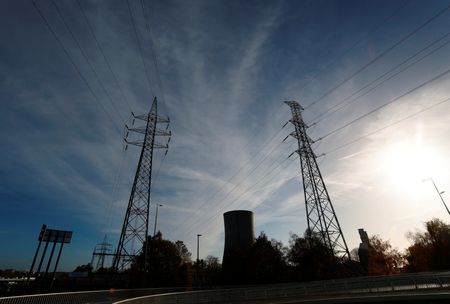By Kate Abnett and America Hernandez
BRUSSELS/PARIS (Reuters) – Fourteen energy companies have urged the European Union to act with “caution” in an upcoming revamp of the bloc’s electricity market, proposing limited tweaks instead of sweeping changes.
The European Commission is preparing reforms to EU electricity market rules, aimed at cushioning consumers’ power bills from fossil fuel price spikes like those triggered last year by cuts to Russian gas supply.
In a letter to the Commission this week, firms including Iberdrola, RWE, Engie, Orsted, Fortum, Enel and Uniper urged Brussels to focus on reforms that will drive massive investment in renewable energy, low-carbon generation and energy savings.
“This reform of the electricity market needs to be handled with caution, as it bears the risk of creating fragmentation of the internal energy market,” said the letter, which was published by Swedish utility Vattenfall, another signatory.
The companies endorsed an idea suggested by the Commission to incentivise more Power Purchase Agreements and Contracts for Difference (CfDs) – types of long-term, fixed-price power contracts that aim to guarantee a revenue stream for renewable energy projects and offer consumers more predictable prices.
However, they said such measures must remain voluntary and not be forced upon generators. Short-term electricity markets could be improved, but should not be scrapped, the companies added.
Their letter broadly aligns with the stance of seven EU countries including Germany and Denmark, who this week told Brussels not to rush into major power market reforms, and instead focus on limited changes that could incentivise green energy investments.
Like those countries, the energy companies opposed the idea of extending emergency measures the EU imposed last year to cope with the energy crisis – among them a scheme to claw back windfall revenue from power plants.
The reforms must also avoid “any retroactive effect which could lead to significant litigation,” the companies added.
That could put them at odds with Spain, which is in favour of a deeper market reform and has suggested allowing countries to sign CfDs with existing power plants to prevent them from reaping excess profits in electricity markets.
(Reporting by Kate Abnett, America Hernandez; Editing by Emelia Sithole-Matarise)











